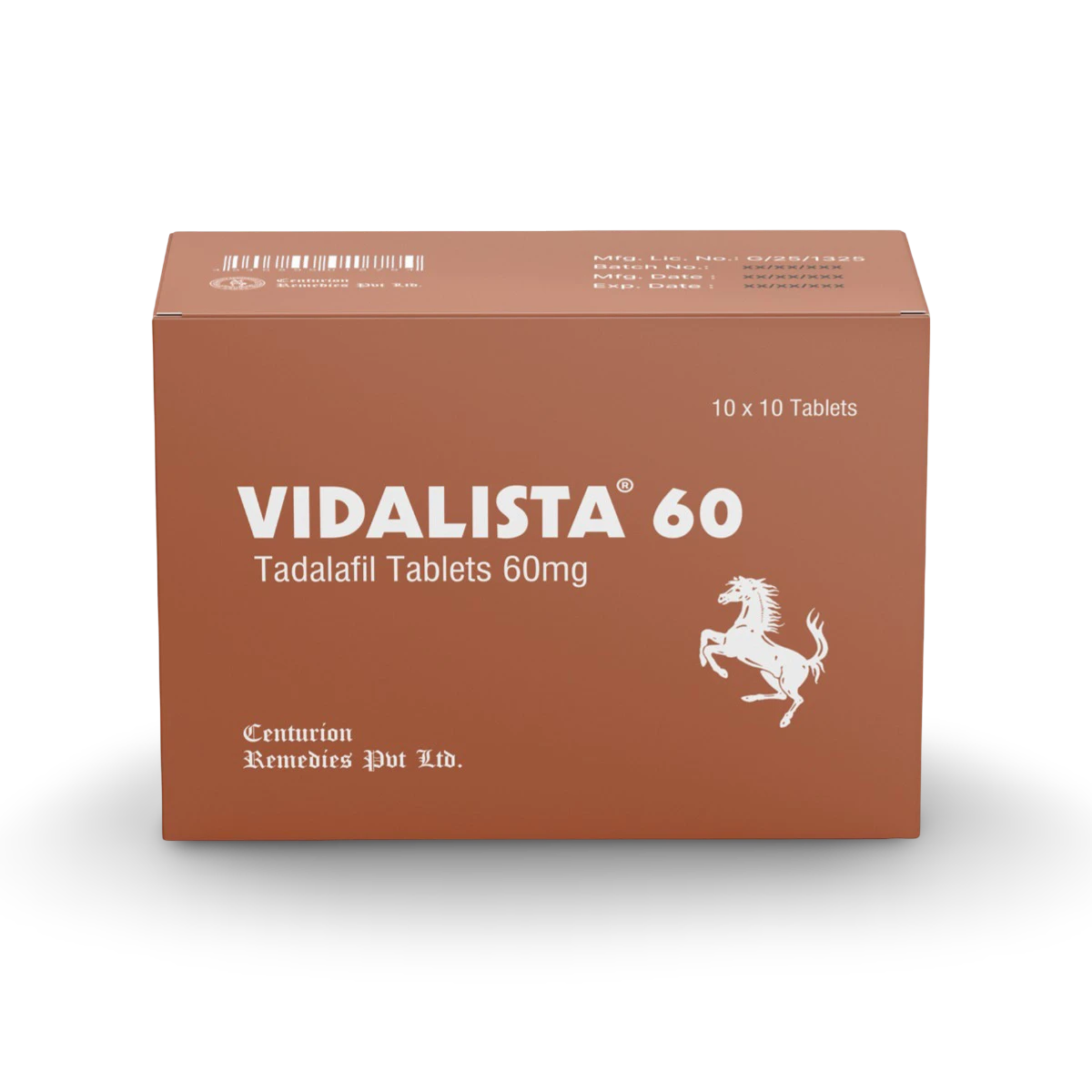Low sex drive, or reduced libido, in men or Assigned males at Birth (AMAB) is more common than most people realize, but it’s rarely spoken about publicly. While occasional drops in desire are natural, a consistent loss of interest in sex may be highly distressing, affecting relationships, self-esteem, and overall happiness.
But here’s the truth: having a continuously low libido isn’t in your head or a normal aspect of aging. It might indicate that something serious is going on, and understanding why your sex drive is declining, whether due to stress, hormonal changes, emotional strain, or a medical problem, is the initial essential step toward finding solutions.
This isn’t only about regaining physical intimacy; it’s also about recovering a vital aspect of your well-being and connection. In this article, we will look into the signs, causes, and treatment approaches for low sex drive in men.
Low sex drive in men symptoms
Low libido or low sex drive is defined as a decreased interest in sexual activity, including fewer thoughts or fantasies about sex, a lower desire for sexual interactions, and less arousal in reaction to sexual stimuli. When this deficiency persists and produces significant distress, it may be classified as Male Hypoactive Sexual Desire Disorder (HSDD).
The primary symptom of reduced sexual desire in men is a notable and persistent reduction or absence of interest in sexual activity. Other related symptoms may include:
- Feeling dissatisfied or upset because of a lack of sexual desire
- Reduced frequency of masturbation
- Fewer spontaneous erections (such as morning erections)
- Fatigue and lack of energy
- Mood swings, impatience, and feelings of sadness
- Problems with focus and memory
- Erectile Dysfunction (often occurs along with the condition)
Save up to 90% on your medicine bills

Cenforce 100 mg

Cenforce 200 mg

Kamagra Oral Jelly Rx 100 mg

Vidalista 60 mg
Causes for low sex drive in men
Various physical, psychological, and lifestyle factors can lead to low sex drive in males. Let’s look at these causes in detail.
Physical factors
The following physical factors can cause a reduction in sex drive in men:
- Low Testosterone (Hypogonadism): Testosterone is the primary male sex hormone that regulates sex desire, muscular mass, bone density, and red blood cell formation. As men age, their Testosterone levels usually decrease. However, extremely Low Testosterone levels might cause reduced libido, fatigue, Depression, and Erectile Dysfunction (ED).
- Medical conditions: Heart diseases, Diabetes, kidney failure, Liver Cirrhosis, and HIV/AIDS can all have an impact on sex desire, whether directly or indirectly.
- Medications: Many medicines might cause reduced libido as a side effect. These include antidepressants, especially Selective Serotonin Reuptake Inhibitors (SSRIs), antipsychotics, blood pressure meds, including Angiotensin-converting Enzyme (ACE) inhibitors, Beta-blockers, chemotherapy medications, and some hair loss treatments, such as Finasteride.
Psychological factors
Several psychological issues can also cause a drop in your sexual desire. These often include:
- Stress, Anxiety, and Depression: Severe and prolonged stress enhances Cortisol levels, which can interfere with sex hormones, leading to a decline in sexual urge. Depression can result in a significant loss of interest and pleasure in all activities, including sex. Performance anxiety, particularly early in a man’s sexual life, can also contribute.
- Relationship problems: Unresolved conflicts, a lack of emotional intimacy, poor communication between couples, or an overwhelming sense of familiarity in a long-term relationship can all significantly reduce sexual desire.
- Low self-esteem: Negative body image or self-perception can have an adverse effect on a man’s confidence and desire for intimacy.
- Trauma: Past trauma, particularly sexual assault, can have long-term consequences on sexual desire and function.
Lifestyle factors
Apart from physical and psychological factors, certain lifestyle choices can also negatively impact your sex drive, including:
- Alcohol: Chronic and severe alcohol intake can lower Testosterone production and impair sexual performance.
- Lack of exercise: Lack of regular exercise has been shown to adversely affect sexual health by reducing Testosterone, decreasing blood flow, and increasing stress levels.
- Inadequate sleep: Sleep deprivation can affect hormone function, resulting in low energy and sexual desire.
- Improper diet and Obesity: A poor diet, particularly one heavy in sugar, can lead to serious illnesses, such as Diabetes and heart disease, both of which are associated with decreased libido. Obesity, in particular, can cause reduced Testosterone levels, leading to low libido.
- Smoking: Smoking damages the cardiovascular system, reducing blood supply, which is essential for sexual function and overall energy levels.
How to fix low sex drive in men?
Treatment for low sex drive in men is highly specific and depends on the underlying cause. It often involves medical approaches, psychological therapies, and lifestyle modification. Let’s see these treatment strategies to get your sexual desire back on track in detail.
Medical approaches
The following medical treatments can help regain your sex drive:
- Testosterone Replacement Therapy (TRT): If Low Testosterone levels are verified by blood tests and causing symptoms, TRT can be provided in several ways, including gels, injections, patches, pellets, and buccal tablets. TRT can boost libido, mood, and erectile function in men with Testosterone deficiency.
- Medication review: If a medication is found to be the reason, your doctor may recommend modifying the dosage or switching to another medication.
- Treating underlying conditions: Addressing chronic diseases such as Diabetes, heart disease, and Thyroid issues might help boost libido.
- Medications for ED (if co-occurring): While ED pills like Sildenafil, Tadalafil, Vardenafil, and Avanafil do not directly cure low libido, they can aid with erectile function, which may indirectly boost confidence and desire.
Psychological therapies
Sometimes, psychological therapies are helpful in addressing the emotional factors leading to low sex drive. The strategies often include:
- Individual psychotherapy: A therapist can assist men in treating underlying mental health issues, including Depression, Anxiety, poor self-esteem, or prior trauma that are affecting their sexual drive.
- Couples therapy: Couple therapy may be extremely beneficial for addressing marital issues, enhancing communication, promoting emotional connection, and resolving disputes that may be related to a lack of desire for sex.
- Sex therapy: Specialized sex therapists can educate patients about sexual responses, treat specific sexual fears, and provide ways for increasing sexual enjoyment and closeness.
- Open communication: Talking freely and honestly about your sexual desires, concerns, and fantasies with your partner may strengthen your relationship and resolve silent difficulties.
- Focus on foreplay: Experimenting with different kinds of foreplay, like touching and kissing, can increase sexual enjoyment and connection, relieving pressure on performance.
Lifestyle changes
Along with medical and psychological approaches, several lifestyle factors can also help boost sexual performance. This often includes having a healthy diet, exercising regularly, managing stress and weight, and limiting alcohol intake.
When to consult a doctor?
It’s essential to visit a doctor if:
- You experience a lack of sex desire that lasts for many weeks or longer and causes unhappiness or has an influence on relationships.
- If low libido is combined with other symptoms such as exhaustion, mood changes, weight gain, or ED.
- If you observe an unexpected decline in libido unrelated to obvious stresses or disease.
- If you think a new medication is harming your sexual drive.
A doctor typically collects a complete medical history, including lifestyle and relationship issues, performs a physical examination, and may prescribe blood tests to assess hormone levels and suggest the precise treatment.

Conclusion
Low sex drive in men is a common but frequently overlooked condition that can be caused by physical, psychological, or lifestyle factors. While occasional libido dips are normal, a consistent lack of sexual desire may indicate an underlying issue that needs attention.
The good news is that a low sex drive may be treated with the correct approach, whether it’s medical treatments, therapy, lifestyle modifications, or a mix of these. Open conversation with your partner and healthcare practitioner is essential for determining the underlying problem and developing successful treatments.
Regaining a healthy libido improves not just sexual well-being but also self-esteem, emotional closeness, and general quality of life.
Frequently Asked Questions
Can dehydration impact my sexual drive?
Yes, persistent dehydration can cause fatigue, decreased blood flow, and lower Testosterone levels. The combination of these factors may reduce libido. Staying hydrated supports general physical processes, such as hormone balance and sexual performance.
Can digestive wellness affect my libido?
Yes. Poor gut health can cause inflammation and hormone imbalances, which may reduce sex drive. A healthy stomach promotes nutrition absorption, hormone balance, and mood, all essential for maintaining sexual attraction.
Can regular porn users have reduced sex drives?
Yes, in some cases, excessive pornography use may desensitize the brain’s reward system, making real-life intimacy less desirable. This can lead to decreased libido or intimacy-related performance concerns over time.
Do environmental contaminants influence male sexual drive?
Yes, pollutants such as BPA, phthalates, and heavy metals impair endocrine function and lower Testosterone levels. Long-term exposure to chemicals may reduce sperm quality and sexual drive in males, particularly in polluted areas.
Can chronic pain diminish a man’s sexual drive?
Yes. Chronic pain frequently results in physical discomfort, sleep disturbance, and mental stress, all of which can reduce sexual desire. Pain medications may also impair libido, worsening the problem for men with chronic pain.
When referencing outside resources, GoodrxMedicine always provides full citations. To learn more about the measures we use to maintain the quality of our content, please review our Content Information Policy.











